Why Market Intelligence Tools Matter in 2025
“In today’s hyper-competitive world, guessing the market is a recipe for failure.”
That’s not an exaggeration—it’s the truth. Businesses in 2025 don’t just compete with their local rivals; they’re up against global brands, tech-driven startups, and customers who expect smarter, faster, and more personalized experiences. To survive and grow, you need more than just gut instinct. You need data—and not just any data, but the right kind of data at the right time.
That’s exactly where market intelligence tools come in.
If you’re wondering what are market intelligence tools and how they help businesses, here’s the short answer: they are digital platforms or software that collect, organize, and analyze market data—so you can make smarter business decisions. Instead of playing the guessing game, you get real insights into customer behavior, market trends, competitor moves, and growth opportunities.
In 2025, relying on these tools isn’t optional—it’s survival. Whether you’re a startup or an enterprise, market intelligence tools act like your strategic command center, helping you track industry shifts, spy on competitors (ethically, of course), and make data-backed moves that keep you ahead.
What are Market Intelligence Tools? (Beginner-Friendly)
Let’s break it down in simple words.
Market intelligence tools are software or platforms designed to gather and analyze data from multiple sources—things like social media, customer reviews, competitor websites, industry reports, and even real-time market activity. They help you understand where the market is today and where it’s headed tomorrow.
Think of them as Google Maps for your business strategy. Instead of wandering around blindly, you get directions, traffic updates, and the best route to your destination—whether that’s winning more customers, finding new opportunities, or staying one step ahead of competitors.
Now, don’t confuse them with market research tools.
- Market Research Tools = usually focus on surveys, feedback, and customer studies (good for snapshots).
- Market Intelligence Software = goes deeper, giving you live data, competitor tracking, and predictive insights (good for ongoing strategy).
That’s why in 2025, more and more companies are choosing the best market intelligence software instead of relying only on old-school research. These tools combine business intelligence and analytics in one place, saving you time and helping you avoid costly mistakes.
12 Best Market Intelligence Tools in 2025
When it comes to staying ahead of the competition, market intelligence tools are a must. Below, we’ve rounded up the top market intelligence tools in 2025 that businesses (from startups to enterprises) are using to make smarter, data-driven decisions.
1. Crunchbase – Market Intelligence Tool for Startups & Investors

Crunchbase is one of the most popular AI-powered market research tools, especially for startups and investors. It offers deep insights into funding rounds, company growth, and market trends.
Key Features:
- Startup and funding database.
- Real-time alerts for acquisitions & investments.
- Industry trend tracking.
- Easy-to-navigate dashboards.
Pros: Huge database of startups and investors, simple to use.
Cons: Limited free version; advanced features are pricey.
Pricing: Free plan available; paid plans start at $29/month.
Best For: Startups, VCs, and entrepreneurs who need market intelligence solutions for business growth.
website: Crunchbase.
2. SEMrush – Competitor Analysis & Keyword Tracking
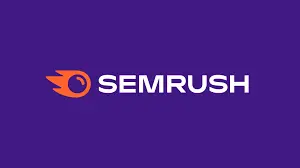
SEMrush is more than just an SEO tool. It’s one of the best competitive intelligence software that helps you understand competitors’ traffic sources, keywords, and advertising strategies.
Key Features:
- Competitor keyword tracking.
- Market Explorer for audience insights.
- Traffic analytics & benchmarking.
- Paid ad and SEO campaign analysis.
Pros: Robust competitor analysis; accurate keyword data.
Cons: Steeper learning curve; premium pricing.
Pricing: Plans start at $129/month.
Best For: Digital marketers, agencies, and businesses needing tools for business intelligence and analytics.
Website: SEMrush.
3. SimilarWeb – Traffic & Digital Market Insights
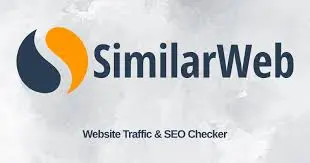
SimilarWeb provides powerful market intelligence solutions with detailed web traffic analytics. It’s excellent for benchmarking and competitor tracking.
Key Features:
- Website traffic breakdown (by source, region, device).
- Competitor comparison.
- Audience demographic data.
- Mobile app analytics.
Pros: Detailed competitor traffic insights; user-friendly UI.
Cons: Expensive for small businesses.
Pricing: Custom pricing.
Best For: Businesses that want market intelligence tools for small businesses and enterprises alike.
Website: SimilarWeb
4. Statista–Data–Driven Market Research Software

Statista is a data-driven market intelligence tool that provides statistics, reports, and market studies across thousands of industries.
Key Features:
- 80,000+ topics across 22,000 sources.
- Market forecasts & industry insights.
- Easy-to-use charts & infographics.
- Academic-level reports.
Pros: Reliable, comprehensive data.
Cons: Full reports require a premium plan.
Pricing: Premium starts at $39/month.
Best For: Businesses, researchers, and marketers looking for AI-powered market research tools with verified data.
Website: Statista–Data–Driven
5. ZoomInfo – B2B Market Intelligence Platform

ZoomInfo is widely regarded as one of the top market intelligence tools for B2B sales and marketing teams.
Key Features:
- Database of 150M+ professionals & companies.
- Real-time contact enrichment.
- Intent data for prospecting.
- Advanced segmentation tools.
Pros: Powerful B2B data; integrates with CRMs.
Cons: Pricing is on the higher side.
Pricing: Custom quotes.
Best For: B2B companies needing the best competitive intelligence software for sales growth.
Website: ZoomInfo
6. Owler – Competitor Tracking Market Intelligence Solution

Owler focuses on competitor intelligence and is a favorite among startups and small businesses.
Key Features:
- Daily competitor news alerts.
- Community-driven company profiles.
- Benchmarking tools.
- Customizable watchlists.
Pros: Free version available; easy competitor monitoring.
Cons: Limited advanced insights compared to bigger platforms.
Pricing: Free plan; Pro version starts at $99/year.
Best For: Small businesses that need market intelligence tools for small business growth.
Website: Owler
7. CB Insights – Business Analytics & Trend Spotting

CB Insights is an advanced AI-powered market research tool that helps businesses spot trends before they go mainstream.
Key Features:
- Market maps & trend analysis.
- Startup and investor tracking.
- Predictive analytics.
- Technology intelligence.
Pros: Great for spotting emerging trends.
Cons: Expensive; more suited for large companies.
Pricing: Enterprise-level pricing.
Best For: Enterprises, consultants, and investors seeking market intelligence solutions for business growth.
Website: CB Insights
8. Brandwatch – Social Listening & Customer Insights Tool

Brandwatch is perfect for customer-driven market intelligence, tracking what people say about your brand online.
Key Features:
- Social listening across multiple platforms.
- Sentiment analysis with AI.
- Competitor benchmarking.
- Real-time dashboards.
Pros: Great for brand monitoring; strong social insights.
Cons: Pricing may not suit small businesses.
Pricing: Custom quotes.
Best For: Brands that want AI-powered market research tools for consumer insights.
Website: Brandwatch
9. Tableau – Business Intelligence & Market Analytics Visualization
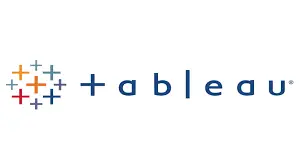
Tableau is a business intelligence software that turns data into interactive dashboards.
Key Features:
- Drag-and-drop data visualization.
- Real-time analytics.
- Seamless integrations (CRM, ERP).
- AI-powered predictive insights.
Pros: Intuitive design; highly visual.
Cons: Can feel complex for beginners.
Pricing: Starts at $70/user/month.
Best For: Businesses that want tools for business intelligence and analytics.
Website: Tableau
10. NielsenIQ – Retail & Consumer Market Intelligence Software
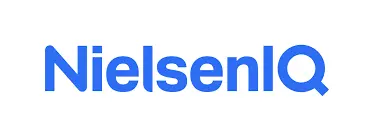
NielsenIQ specializes in retail and consumer data, making it a top market intelligence tool for product-based businesses.
Key Features:
- Retail measurement analytics.
- Consumer behavior insights.
- Market forecasts.
- Product performance tracking.
Pros: Best-in-class retail data.
Cons: Expensive; requires training.
Pricing: Enterprise pricing.
Best For: Retailers, FMCG, and product companies looking for the features of top market intelligence software.
Website: NIQ
11. AlphaSense – Market Research & Financial Insights Platform

AlphaSense is a market research tool designed for finance, consulting, and enterprise sectors.
Key Features:
- AI-powered financial document search.
- Market reports & transcripts.
- Sentiment analysis.
- Real-time insights.
Pros: Excellent for financial intelligence.
Cons: Pricing is premium.
Pricing: Custom enterprise quotes.
Best For: Consultants, financial analysts, and enterprises using market intelligence solutions for business growth.
Website: AlphaSense
12. Klue – Competitive Intelligence and Sales Enablement Tool
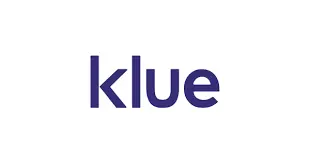
Klue focuses on competitive intelligence by gathering, analyzing, and sharing competitor insights with sales teams.
Key Features:
- Competitor battle cards.
- Centralized competitive data hub.
- AI-driven competitor insights.
- Sales enablement tools.
Pros: Great for sales teams; easy sharing of competitor data.
Cons: More suited for larger teams.
Pricing: Custom pricing.
Best For: Companies needing the best competitive intelligence software for sales strategy.
Website: Klue
Comparing Market Intelligence Tools: Which One Is Right for You?
With so many top market intelligence tools out there, choosing the right one can feel overwhelming. Some are perfect for startups on a tight budget, while others are built for enterprise-level businesses. To make things easier, here’s a market intelligence tools comparison that highlights the strengths of each platform.
| Tool | Best For | Key Features | Pricing (Starts From) | Unique Edge |
|---|---|---|---|---|
| Crunchbase | Startups & Investors | Company database, funding data, market trends | $29/month | Ideal for discovering new opportunities |
| SEMrush | Digital Marketers | SEO, PPC, competitor analysis, keyword tracking | $129.95/month | All-in-one marketing intelligence |
| SimilarWeb | Website Analysis | Traffic insights, industry trends, benchmarks | $167/month | Great for digital market insights |
| Statista | Researchers & Analysts | Market stats, reports, global datasets | $49/month | Trusted source for research |
| ZoomInfo | B2B Companies | Lead generation, sales intelligence, CRM integration | Custom Pricing | Deep B2B database |
| Owler | Competitive Tracking | Company updates, competitor news alerts | $99/month | Simplifies competitor monitoring |
| CB Insights | Enterprises & Investors | Market forecasting, trend spotting | Custom Pricing | Strong for innovation insights |
| Brandwatch | Brands & Agencies | Social listening, consumer behavior insights | $800/month | AI-driven social intelligence |
| Tableau | Data Teams | BI dashboards, data visualization, analytics | $70/user/month | Visual-first decision making |
| NielsenIQ | Retail & Consumer Brands | Retail tracking, consumer habits, brand growth | Custom Pricing | Leader in consumer insights |
| AlphaSense | Finance & Market Research | AI-powered document search, financial insights | $120/month | Perfect for analysts |
| Klue | Sales Teams | Competitive intelligence, sales enablement | Custom Pricing | Helps sales teams win deals |
Pro Tip: Instead of going for the most expensive option, pick a tool that aligns with your immediate needs. For example, if you’re running a small eCommerce store, SimilarWeb or SEMrush might give you faster insights than heavy enterprise solutions like CB Insights.
How to Choose the Best Market Intelligence Tool for Your Business
Now that you’ve seen the market intelligence tools comparison, the next big question is: how do you select the best market intelligence software for your business?
Here are the key things to consider:
- Budget & ROI: Don’t blow your budget on an advanced tool if you’re just starting. Begin with affordable options and scale up once you see measurable returns.
- Team Size: Small businesses and solo founders often need simple dashboards and automated reports. Larger enterprises, on the other hand, may need full CRM/ERP integration.
- Industry Needs: A SaaS company may find Crunchbase and SEMrush more useful, while a retail business might rely heavily on NielsenIQ and Brandwatch for consumer insights.
- Ease of Use: Fancy dashboards don’t matter if your team can’t use them. Look for user-friendly market intelligence solutions for business growth that come with tutorials and support.
- Scalability: Pick a tool that can grow with you. You might not need AI-powered forecasting today, but as your business expands, you’ll want the option to upgrade.
Practical Tip: Start small with one tool that solves your biggest problem right now (like competitor tracking or SEO research). Once you start seeing ROI, expand to a more comprehensive solution.
Future Trends in Market Intelligence Tools (2025 & Beyond)
The future of market intelligence software is being shaped by AI, automation, and cloud technology. Businesses in 2025 can’t afford outdated tools that only collect data—they need platforms that analyze, predict, and recommend next steps.
- AI-Powered Insights:
Modern AI in market intelligence tools helps businesses move from reactive to proactive. Instead of just reporting what happened, these tools can forecast what’s likely to happen next. For example, AI can identify an upcoming demand spike for a product before competitors even notice. - Predictive Analytics for Smarter Decisions:
Predictive models are now built into the best competitive intelligence software. They help brands forecast customer behavior, future sales trends, and potential risks. This transforms decision-making from guesswork to data-backed strategies. - Cloud-Based Scalability:
With remote teams and global operations, cloud-based market intelligence solutions are becoming the norm. They allow instant access to real-time dashboards from anywhere, making them especially powerful for fast-scaling startups and enterprises. - Integration with AI Assistants & Automation:
Expect to see tools that connect directly with CRMs, ERPs, and even AI assistants like ChatGPT for on-the-go intelligence reports. This makes insights not only available but also actionable in real-time.
Takeaway: The future of market intelligence software lies in AI-driven insights, predictive analytics, and seamless scalability—helping businesses not just keep up, but lead.
Conclusion: Smarter Growth with Market Intelligence Tools
In 2025, businesses that rely only on intuition will be left behind. Market intelligence tools give you a competitive edge by combining data, customer insights, and predictive analytics into one strategic powerhouse.
Whether you’re a small business owner trying to understand your customers better or a large enterprise aiming to track competitors and forecast trends, the right market intelligence platform can transform the way you operate.
Final Advice: Don’t just play catch-up—stay ahead by investing in the right market intelligence software for your business today. The earlier you start, the more data you’ll accumulate, and the smarter your future decisions will be.
10. FAQs (Schema-Ready for SEO)
Q1. What is a market intelligence tool?
A market intelligence tool is software that helps businesses collect, analyze, and visualize market data—such as customer behavior, competitor activity, and industry trends—to make smarter decisions.
Q2. Which is the best market intelligence software for small businesses?
For small businesses, tools like Owler (competitor tracking) and SimilarWeb (traffic insights) are budget-friendly and highly effective.
Q3. How do market intelligence tools help in competitor analysis?
They track competitors’ pricing, traffic, campaigns, and customer reviews, giving you a clear picture of where you stand and what opportunities you can leverage.
Q4. Are market intelligence tools worth it in 2025?
Absolutely. With increasing competition and fast-changing trends, they help reduce risks and support data-driven growth strategies.
Q5. What’s the future of AI-powered market intelligence?
The future is moving toward AI-driven predictions, real-time automation, and integrated business intelligence platforms that act like a digital strategist for your company.
For more valuable content, visit our website NextGenAI.
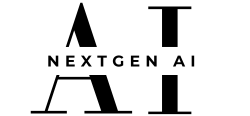
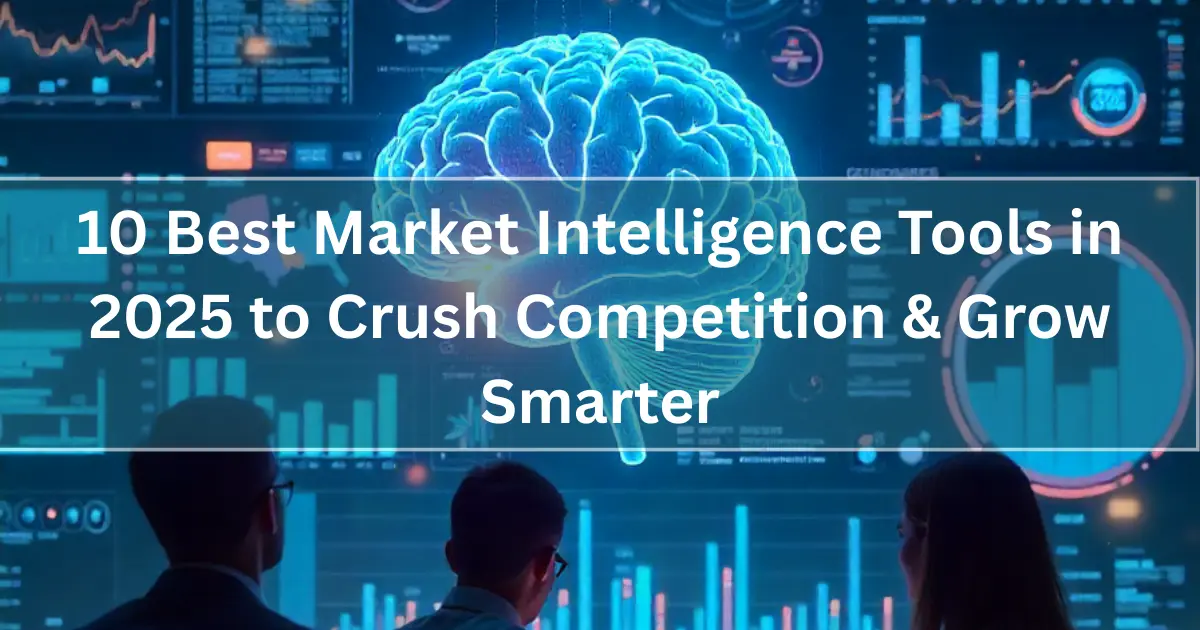



Its like you read my mind You appear to know so much about this like you wrote the book in it or something I think that you can do with a few pics to drive the message home a little bit but instead of that this is excellent blog A fantastic read Ill certainly be back
Hello Neat post Theres an issue together with your site in internet explorer would check this IE still is the marketplace chief and a large element of other folks will leave out your magnificent writing due to this problem
Just wish to say your article is as surprising The clearness in your post is just cool and i could assume youre an expert on this subject Fine with your permission allow me to grab your RSS feed to keep updated with forthcoming post Thanks a million and please keep up the enjoyable work
Your blog is a true hidden gem on the internet. Your thoughtful analysis and in-depth commentary set you apart from the crowd. Keep up the excellent work!
?Llevas tiempo queriendo encontrar un buen casino online con licencia espanola para apostar con dinero real? Durante meses estuve investigando opciones hasta que encontre [url=casinos-dinero-real.mystrikingly.com]juegos de dinero real online[/url].
Me tope con una lista confiable de casinos en linea en Espana donde puedes jugar sin riesgos. Lo primero que me gusto fue que todos los casinos tienen licencia oficial. Eso garantiza transparencia. Ademas, puedes jugar desde el movil. Funciona igual desde casa o fuera y todo cargo perfectamente.
?Bonos? ?Claro que si! Las marcas que figuran ofrecen giros gratis para que empieces con ventaja. ?Te gusta el blackjack? Los juegos no decepcionan. Desde poker online en Espana hasta ruleta europea, todo esta ahi.
Los cobros es seguro. Yo probe PayPal y fue instantaneo. Eso demuestra seriedad. Si eres de Madrid, te invito a visitar esta plataforma. Conseguiras los mejores casinos online con dinero real en este ano.
Jugar con cabeza es fundamental. Y hacerlo en un entorno confiable es el primer paso.
No pierdas mas tiempo, elige tu favorito y empieza a ganar.